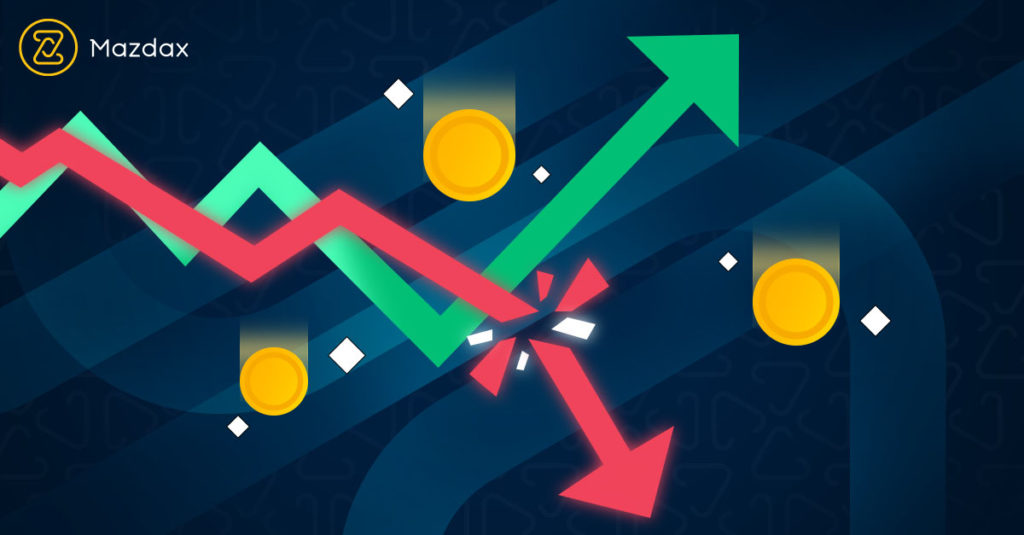In this article from the Academy of Mazdax, we will discuss the concept of trading psychology. We will also discuss how to build a strong trading mentality, and how to avoid emotional trading.
A successful trading career in the financial markets requires a variety of skills. These skills include evaluating a product’s background and recognizing market trends. However, none of these technical skills are as important as the trader’s mindset.
A trader’s mental state includes emotions, speed, and discipline, which we call “trading psychology”. The right strategy alone wouldn’t be enough for a trader to succeed if he or she did not have a sound trading psychology. To be a successful trader, you must be able to control your emotions.
How is trading psychology defined?
Trading psychology refers to the way in which a trader manages their mental state in the face of profit and loss. A person’s trading psychology reveals how he manages risks and does not deviate from his trading plan in the face of challenges. A trader’s ability to control these emotions is part of his or her trading psychology, as emotional factors tend to dictate every trade that is made.
Although traders cannot escape emotions in trading, it is at least important to be aware of the ways in which emotional orientations can negatively affect their trading decisions.
Our objective is to learn how to harness these emotions and develop a winning mindset. Reading psychological books and listening to expert investors can also help you develop a trading plan. In order to follow a consistent strategy and avoid losses, you should develop a trading plan.
Fear of Missing Out (FOMO)
Fear of missing out (FOMO) is when you think you are missing a great opportunity. An investor may be afraid to stay out of the market if the price of the asset spikes rapidly. Beginner traders are particularly prone to experiencing this feeling. In other words, they may buy or sell an asset just because of the fear of missing an opportunity. It is important to keep in mind that there are always opportunities in the market. You must enter the trade based on your trading plan, not simply out of fear of losing profits.
Greed is another major obstacle for many traders. Essentially, trading is intended to make a profit. To achieve success, you must have the right mindset. You should set a specific goal for yourself (e.g. a specific percentage of performance per month) and strive to achieve it. Don’t let greed control your emotions and actions.
The most effective way to improve trading psychology is to never stop researching. Markets are constantly evolving, and your strategy may need to be adjusted from time to time
Mistakes in trading psychology and the impact on trading
There is a common mistake in trading where traders enter positions based on gut feelings or intuition without having a specific trading strategy in place. It is caused by the lack of accurate information and data. This leads to fear and anxiety about the possibility of losing a golden opportunity or losing capital.
To avoid getting caught up in this vicious cycle, a trader must remain disciplined along with having a trading plan. Ensure that all trades are conducted according to specified rules and objectives. It is extremely risky to trade on emotion without a valid trading plan.
In order to avoid making these mistakes, you require a risk management system that includes the following elements:
- Stop-loss level
- When to close a trade for profit (take profit)
- Any potential stop loss
- Indicators that help confirm stop loss levels and take profit timing.
How to avoid emotional trading
To get rid of emotions in trading you must first understand them and then control them. To achieve this goal, every trader must:
1. Have a written trading plan
It is essential to have a well-defined plan that includes: which system you use (fundamental analysis, technical analysis, or a combination of both), what are the advantages and disadvantages of the system, how to identify trade opportunities, and how to manage them.
A trading notebook should accompany this strategy, in which you can record your observations, identify your weaknesses and capitalize on your strengths. Trading on emotions will take over if you jump from one strategy to another.
2. Identify your risk tolerance
The risk tolerance of some traders may be very high, even if they suffer large losses. If you are just beginning to trade, you should first determine your level of risk tolerance and then make a plan accordingly.
3. Know when to rest
Stress and fatigue can lead to errors in calculations or revenge trades (trading made immediately after a loss to compensate for it). After a few losing trades, set yourself a rule that you will not trade until you have reviewed what went wrong.
Although trading can cause stress and lead to losses, it is not the only source of stress. Several external factors may adversely affect your mental state. In such circumstances, it is best not to enter into any trades.
Conclusion
Traders’ success is directly related to their ability to develop and reinforce their minds. By doing so, the trader can keep calm and gain a more comprehensive understanding of what is taking place around him. Trading psychology describes how traders react and behave when they are making a profit or losing money. Anyone who trades in large financial markets shows emotional behaviors.
لینک کوتاه کپی شد
https://mazdax.ir/academy/en/?p=9204


